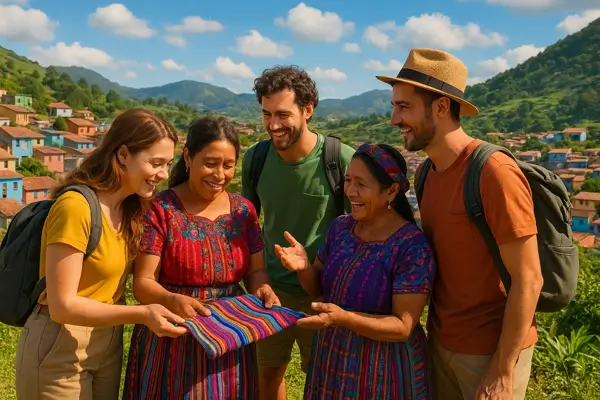
Tourism plays a significant role in shaping economies and cultures around the world. While it brings numerous benefits, it also has the potential to impact local communities in various ways. This article delves into the influence of tourism on local communities, exploring both the positive and negative aspects. By understanding these dynamics, we can work towards nurturing sustainable tourism practices that empower and benefit local residents, preserving their heritage and fostering socio-economic growth.
Economic Growth and Job Creation:
One of the primary benefits of tourism for local communities is the economic growth it generates. Tourism creates job opportunities in various sectors, such as hospitality, transportation, and retail. This influx of income boosts the local economy, stimulates entrepreneurship, and encourages the development of infrastructure. The revenue generated from tourism can be reinvested in community projects, healthcare, education, and other essential services, ultimately improving the quality of life for residents.
Cultural Preservation and Heritage:
Tourism can play a vital role in preserving and promoting local culture and heritage. Visitors often seek authentic cultural experiences, encouraging communities to showcase their traditions, crafts, cuisine, and performing arts. This fosters pride among local residents and provides opportunities to preserve traditional practices that may have been at risk of fading away. Additionally, tourism revenue can be channeled into cultural preservation initiatives, safeguarding historical sites, museums, and traditional festivals for future generations.
Community Development and Empowerment:
Responsible tourism can empower local communities by involving them in decision-making processes and providing them with economic opportunities. Community-based tourism initiatives allow residents to actively participate in tourism activities, such as homestays, guided tours, and artisanal craftsmanship. This not only enhances the visitor experience with authentic interactions but also creates a sense of ownership and pride among community members. By involving locals, tourism becomes a catalyst for sustainable community development.
Environmental Impact and Sustainability:
While tourism brings economic benefits, it can also have adverse effects on the environment. Increased footfall can strain natural resources, contribute to pollution, and disrupt delicate ecosystems. However, sustainable tourism practices aim to mitigate these impacts. Encouraging eco-friendly initiatives such as waste management, renewable energy, and responsible wildlife tourism helps minimize the ecological footprint. Education and awareness programs can also promote responsible visitor behavior, ensuring the long-term sustainability of natural and cultural assets.
Balancing Tourism and Local Life:
As tourism grows, it is crucial to strike a balance between the needs of visitors and the well-being of local communities. Over-tourism can put undue pressure on infrastructure, lead to overcrowding, and cause a decline in the quality of life for residents. By implementing measures such as visitor quotas, managing tourist flow, and promoting off-peak travel, destinations can maintain a sustainable balance that benefits both visitors and locals. Engaging in dialogue with local residents and considering their perspectives can help shape tourism policies that align with community interests.
Tourism has the potential to be a catalyst for positive change in local communities, fostering economic growth, cultural preservation, and community empowerment. However, it requires a responsible and sustainable approach to ensure the long-term well-being of both residents and destinations. By nurturing sustainable tourism practices that consider the social, cultural, economic, and environmental aspects, we can create a harmonious relationship between tourism and local communities. Let us strive for a future where tourism becomes a force for empowerment, preserving heritage, and fostering the socio-economic growth of communities worldwide.
